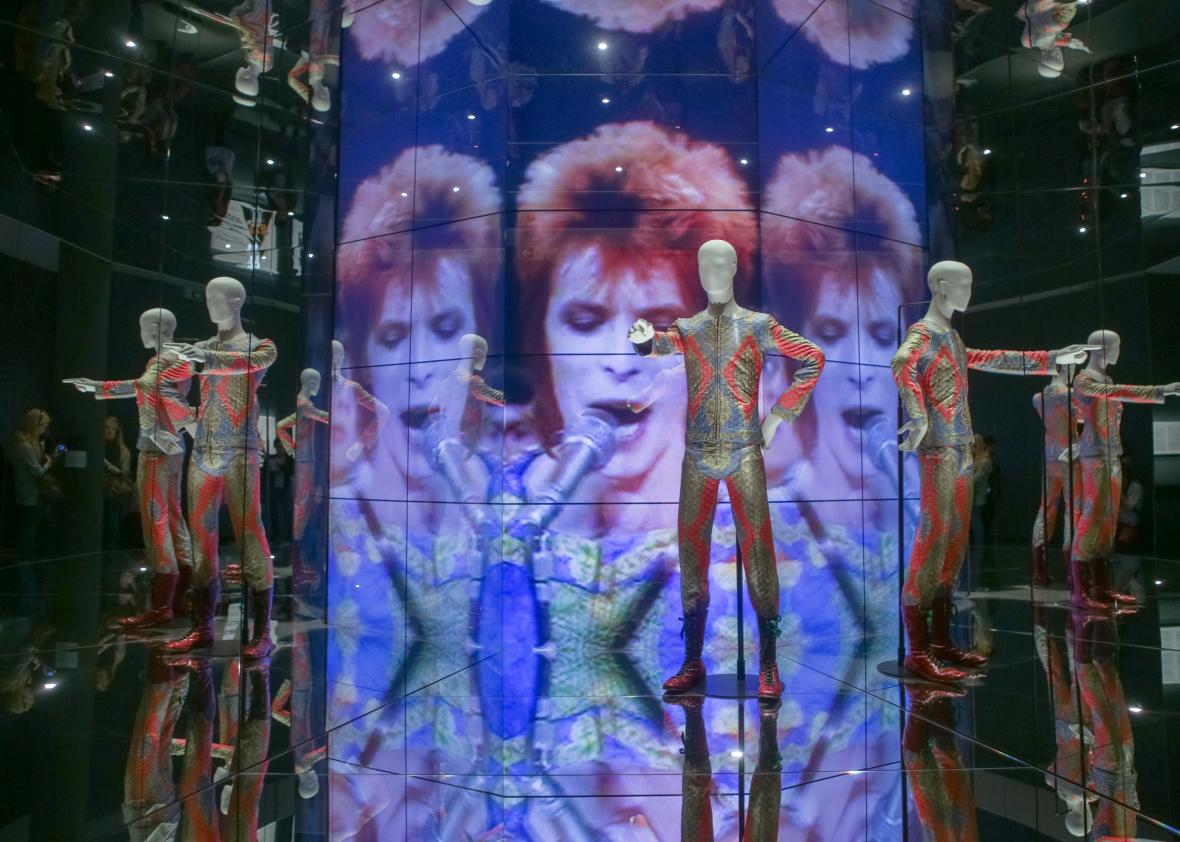Getting Internet connectivity from the Comcasts and Time Warners of the world feels uninspiring and perfunctory. But for a few years in the late ‘90s and early 2000s, you could get Internet service from David Bowie, which just sounds so much better in every way.
On Sept. 1, 1998, Bowie and the network services companies UltraStar and Concentric Network Corp. announced BowieNet in the United States. Guinness World Records named it the first artist-created Internet service provider, and a press release from the United Kingdom launch in December 1998 said it was “logical” that Bowie would be on the cutting edge of digital development.
For $19.95 per month, users got a yourname@davidbowie.com email address, 5MB of online storage to create a personal Web page, access to exclusive Bowie audio and video, an extensive network of chat rooms (including live chats with Bowie himself), shareware, and multiplayer gaming. Or for $5.95, users who didn’t want to use BowieNet as their ISP could buy access to www.davidbowie.com.
In June 2000 at the launch of BowieNet Version 2, Bob Goodale, then-president and chief strategy officer of UltraStar, said that Bowie was “involved in everything” related to the ISP. “People wake up dreading the emails he’s sent with the nine ideas he dreamed up last night,” he said.
When BowieNet launched, Bowie posted a message to users. “The purpose of BowieNet is interactivity and community—plain and clear—everybody has a voice. We have terrific partners so the services and hopefully your experiences at BowieNet will reflect everyone’s commitment to excellence.”
“Mask,” a user in a BowieNet chat, wrote, “You know you’ve been a fan of Bowie too long…… when you agree to pay an extra $5.95 a month to read David’s web journal.”
But some longtime fans worried that the independent online communities they had built around Bowie would be threatened by BowieNet. Evan Torrie, the longtime webmaster of Bowie fansite Teenage Wildlife, told Metroactive in October 1998:
My feeling is that the official BowieNet will be both enhanced and constrained by their official status. They’ll be the only ones who are able to put the copyrighted audio and video files officially on the Net, and of course they’ll probably pick up a lot of visitors who just want that. But on the other hand, they won’t be publishing rumors, unflattering news or irreverent looks at Bowie, which is what a lot of the Bowie fan sites (including mine) like to touch on.
Though BowieNet was an early foray into digital connection between celebrities and fans, it started years after the true beginnings of Internet culture. (People frequently said LOL in livechats with Bowie.) And CNN noted in July 1998, before the official BowieNet launch, that “although the service is called BowieNet, its URL is ‘davidbowie.com’. Pointing a Web browser to ‘bowienet’ on the Internet will take you to ‘Bill Bowie’s Harness Racing Home Page.’ ”
Bill Bowie’s Harness Racing does not seem to have a Web presence today, and bowienet.com is blank. BowieNet shut down quietly in 2006, but BBC News points out that Bowie did not acknowledge this fact himself until a 2012 Facebook post. Bowie wrote, “Some say that it was a Mayan prophecy for 2012 and was forever thus. Others suggest it may have been deliberate sabotage by gremlins, finally successful after a sustained attack over many years. … Whatever the truth, the old Bowienet, as we have known it, is kaput!”
